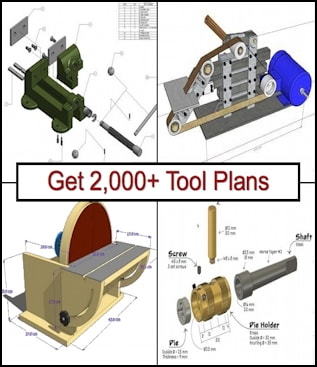Splicing three wires together.
Previously:
Ultrasonic wire splicer - GIF
Optical fiber splicing tool - GIF
Splicing a 24kV electrical line - GIF
NASA technical standard document: Crimping, Interconnecting Cables, Harnesses, Wiring


Splicing three wires together.
Previously:
Ultrasonic wire splicer - GIF
Optical fiber splicing tool - GIF
Splicing a 24kV electrical line - GIF
NASA technical standard document: Crimping, Interconnecting Cables, Harnesses, Wiring

durrelltn (Mar 22, 2022), freddo4 (Mar 22, 2022), nova_robotics (Mar 21, 2022), rlm98253 (Mar 21, 2022), Toolmaker51 (Mar 23, 2022), uv8452 (Mar 27, 2022), Z2V (Mar 26, 2022)
That looks like a mechanically strong joint since the center wire is bend over after the two wires are wrapped around it. However it is not a good electrical connection, unless it is soldered. There is some level of "spring back" with any metal being bent, even soft copper. The two outer wires are not really tight against the center wire. You would be able to easily slide that center wire out if it was not bent over. It will pass current, but the connection is loose, the conductors are not in intimate contact with each other. That will be a point of high resistance in the circuit. It will create heat in use. Heat creates corrosion, corrosion creates resistance, resistant creates more heat. That connection will eventually fail if it is used at or near maximum current for that size conductor.
A couple of times I have been called to replace a circuit breaker that seems to trip on its own. When reset, it will work fine for a while. Both of these were during a holiday when the kitchen range was in use, all 4 surface elements and the oven in use at the same time. Pulling maximum current for the circuit. BUT not enough to trip the breaker. On inspection, the wire connections to the breaker were loose. This created heat at the breaker connection. The external heat caused the breaker to trip, not heat from over current.

freddo4 (Mar 22, 2022), Toolmaker51 (Mar 23, 2022)

While I do make a lot of soldered connections on low voltage wiring I hesitate to use it on higher voltages, favoring the twisted mechanical connection such as this and a crimped copper sleeve , a bolted connector or even a scotch lock twist connector over the final connection, or even better when possible to spot weld the connections. Nothing inherently wrong with soldered connections if done properly they will last for years through many on off cycles, but just like anything else a good soldered connection has to begin with a good mechanical connection or it will fail eventually just as other connections will fail.
Like you said 2 of the main contributing factors of a failed connection are heat and corrosion controlling 1 can stave off the other

Never try to tell me it can't be done
When I have to paint I use KBS products
Toolmaker51 (Mar 23, 2022)
There are currently 1 users browsing this thread. (0 members and 1 guests)
Bookmarks